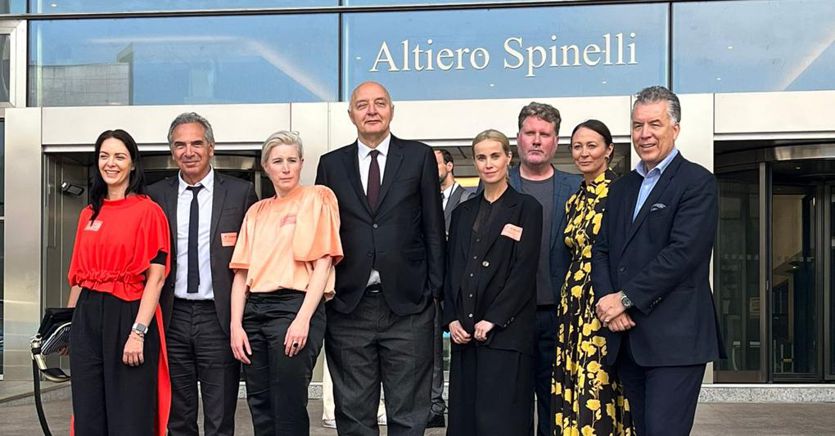«We should organize a parade in Parliament. As you can see, we are already organizing an international Film Festival these days». That of Christian Ehler, a German, MEP since 2004 and now coordinator of the EPP in the Industry and Energy commission, pronounced on the sidelines of the first official meeting with EFA members in Brussels, in the presence of Internal Market Commissioner Thierry, might seem like a joke Breton, last June 7th. Instead, it is an expression that best conveys the idea of how fashion must claim its place on the agenda of the European institutions: «The sector employs 5 million people and is worth 11% of the European GDP», Breton underlined during the meeting by emphasizing the need that the system has to be taken into consideration also at a political level.
Three legislations in the focus of the industry
The themes on the plate, after all, are many. Three measures being studied by the Union, with the aim of limiting the environmental impact of a highly polluting sector, will have a direct influence on the fashion industry at every level: the Espr regulation, which aims to extend the eco-compatible design of products sustainable even in fashion, and which, after the approval of the draft by the Council on 22 May, is subject to evaluation by Parliament pending the plenary session on 20 July; the proposal for a Due diligence directive on corporate sustainability (CSDD), approved by the European deputies on 1 June, which invests companies with liability for any damage caused (with fines of up to 5% of turnover) and the proposal for a Green Claims directive , published by the Commission on March 22, which will target greenwashing.
Capasa: «The EU should consider the specificity of creative fashion»
It is precisely these legislations – Ecodesign in the lead – that have prompted the fashion chambers to join forces and accelerate the dialogue with Europe: «Both Pascal Morand and I (president of the Fédération française de la couture, ed.) went in Brussels in the past, but the requests of individuals are not taken into consideration like the collective ones», explains Carlo Capasa. The proof that unity is strength is that just 10 months and a “physical” meeting between the members from the creation of the European Fashion Alliance (EFA, which has a German president, Scott Lipinski) the association has meeting with the Commissioner for Innovation and Research Maryia Gabriel and an official round table in Brussels organized by the aforementioned Ehler.
«We want Europe to take into consideration the specificities of creative fashion – explains Capasa, president of the CNMI – putting the difference with fast fashion on paper. Issues such as the durability of materials or the use of recycled materials by 2030 risk negatively impacting creativity. In this second case, for example, a distinction should be made between biodegradable and non-biodegradable materials».
Then there is the issue of the digital passport which will be mandatory: «The traceability of the supply chain is very important, but it must be considered that some information is sensitive» says Pascal Morand, president of the Fhcm, evoking the issue of counterfeiting. And Capasa echoes him: «And it should be reported when a garment has been created by AI».
